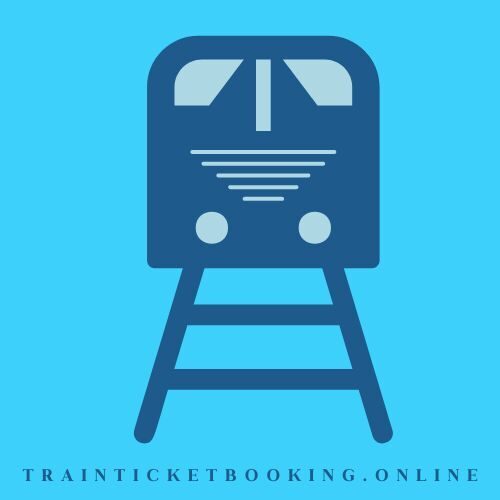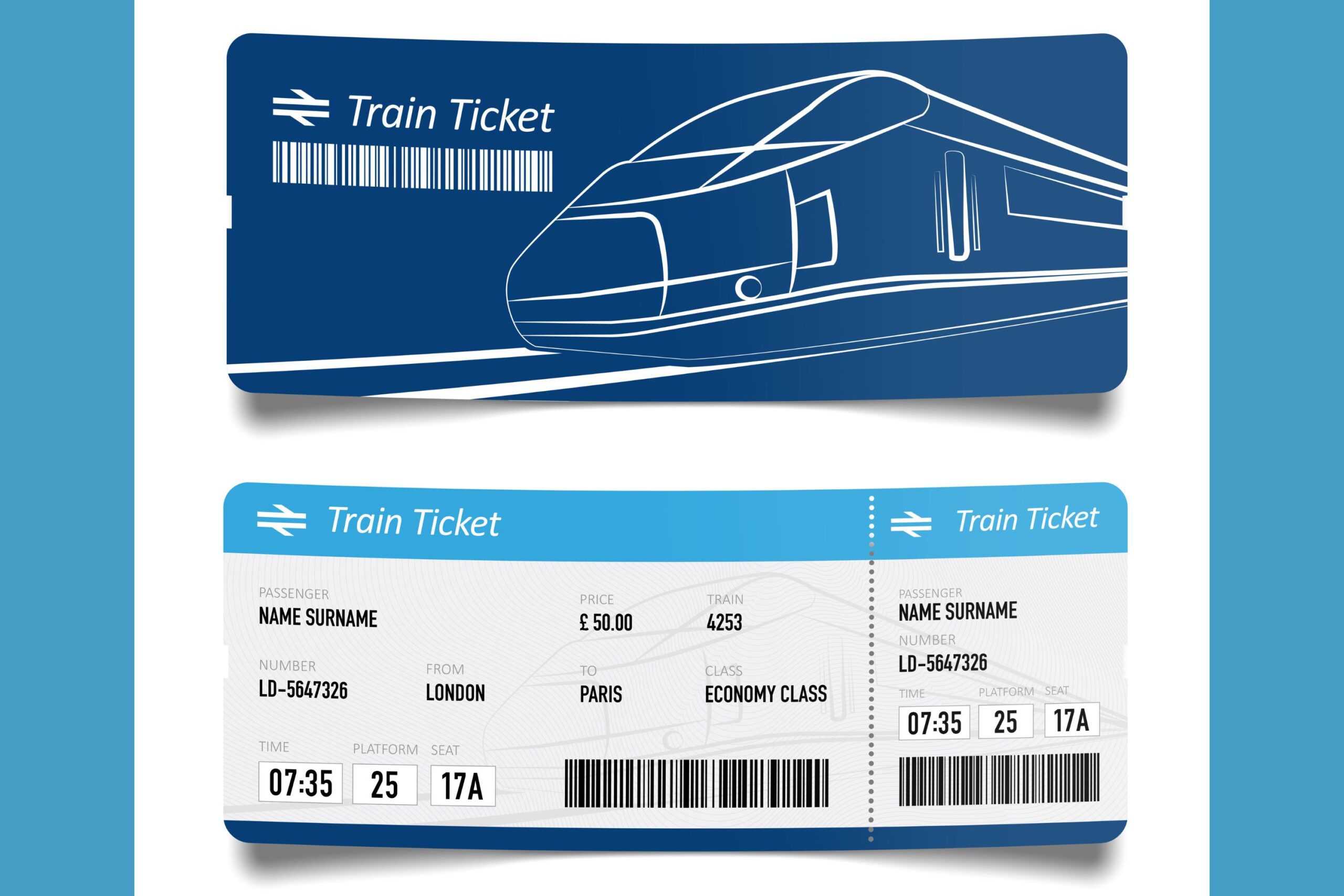When booking train tickets, it’s important to understand the terms and conditions that govern the process. These terms outline the rules and regulations that both the passengers and the train operators must adhere to, ensuring a smooth and hassle-free journey for everyone. Whether you’re a seasoned traveler or a first-time passenger, familiarizing yourself with these terms can help you navigate the booking process, make changes or cancellations when needed, and understand your rights and responsibilities as a passenger.
Key Points:
- Understanding train ticket booking terms and conditions is crucial for a smooth booking process and avoiding confusion.
- Train ticket fares and pricing can vary based on factors such as travel dates, routes, and seat preferences.
- When booking train tickets, consider any additional charges or discounts that may apply.
- The booking process involves selecting destinations, travel dates, seat preferences, and choosing a payment method.
- Be aware of any booking requirements or restrictions that may apply.
Fares and Pricing
When it comes to booking train tickets, understanding the various fares and pricing options is vital. Here, we will explore the factors that can influence ticket prices and provide valuable information on additional charges and discounts to keep in mind.
Train ticket fares can vary based on several factors, including the class of travel, distance, and time of booking. Different fare types are often available, allowing passengers to choose according to their budget and preferences.
One common fare type is the standard fare, which offers flexibility for travelers. This fare allows changes to your travel plans, although additional charges may apply for modifications. It is advisable to review the terms and conditions associated with standard fares before making a booking.
Another popular fare option is the non-flexible fare, which typically offers lower prices but has stricter booking conditions. Passengers who opt for this fare may face restrictions on changes or refunds. It’s important to consider your travel plans carefully when choosing this fare type to avoid any inconvenience later on.
In addition to different fare types, be aware of any additional charges that may apply when booking train tickets. These charges can include booking fees, seat reservation fees, or charges for extra services like additional luggage. You should check fare terms and conditions to avoid any surprises during the booking process.
“Understanding the fares and pricing options available can help you choose the most suitable ticket for your journey. Take the time to compare different fares, consider your travel requirements, and check for any applicable discounts.”
Discounts are often available for certain groups, such as senior citizens, students, or families traveling together. These discounts can provide significant savings on ticket prices. If you qualify for any discounts, make sure to check the eligibility criteria and necessary documentation required to avail them.
It’s important to note that ticket prices can also be influenced by factors like peak travel times, popular routes, and special events. During busy periods, ticket prices may be higher due to increased demand. By planning your travel in advance or considering off-peak travel options, you may be able to secure more affordable fares.
Types of Train Ticket Fares and Pricing
| Fare Type | Description |
|---|---|
| Standard Fare | A flexible fare option allowing changes to travel plans, subject to additional charges. |
| Non-flexible Fare | A fare option with lower prices but stricter booking conditions, limiting changes or refunds. |
| Discounted Fare | Special fares available for certain groups, offering discounts on ticket prices. |
Choosing the right fare and understanding the pricing structure can help you make informed decisions when booking train tickets. Take the time to compare fares, consider any extra charges, and explore available discounts to ensure a smooth and cost-effective journey.
Booking Process
Booking train tickets is a straightforward process that can be done online or at a ticket counter. To ensure a seamless booking experience, follow these simple steps:
- Step 1: Select your destinations
- Step 2: Choose your travel dates
- Step 3: Specify your seat preferences
- Step 4: Explore additional services
- Step 5: Provide passenger details
- Step 6: Review and confirm
- Step 7: Choose your payment method
- Step 8: Receive your ticket
By following these steps, you can easily navigate the train ticket booking process and secure your travel plans. Remember to check for any specific booking requirements or restrictions imposed by the train operator to ensure a smooth and enjoyable journey.

travnikovstudio, Canva.com
Changes and Modifications
When it comes to train ticket bookings, sometimes plans change. Whether you need to adjust your travel dates, alter your route, or update passenger details, it’s essential to understand the terms and conditions surrounding changes and modifications.
Train ticket changes allow you the flexibility to adapt your journey to unforeseen circumstances or personal preferences. However, it’s important to note that these changes may be subject to certain conditions, including fees, deadlines, or limitations.
Before making any modifications, carefully review the specific guidelines provided by the train operator or booking platform. This will ensure that you understand the requirements and avoid any unexpected surprises.
Train ticket modifications typically involve altering key information such as:
- Travel dates
- Routes
- Passenger details
Keep in mind that different train operators or booking platforms may have varying policies regarding modifications. It’s essential to familiarize yourself with these policies to avoid any unnecessary complications.
Some common terms and conditions related to changes and modifications include:
- Change fees: Certain train operators or booking platforms may charge a fee for making changes to your ticket. This fee can vary depending on factors such as the ticket type, the extent of the modifications, and the proximity to the departure date. Be sure to check the specific terms and conditions for any applicable change fees.
- Modification deadlines: Train operators often have specific deadlines by which changes must be made. Missing these deadlines may result in additional fees or restrictions. Be aware of the modification deadlines associated with your ticket to ensure a seamless process.
- Limitations on changes: While modifications may be possible, there may be certain limitations in place. For example, changes may not be allowed for certain ticket types or during peak travel periods. Understanding these limitations beforehand will help you plan accordingly.
By familiarizing yourself with the terms and conditions surrounding changes and modifications, you can navigate the process with confidence and make adjustments to your train ticket when necessary.
Refunds and Cancellations
When it comes to train travel, sometimes plans change. In this section, we will guide you through the policies and procedures for obtaining refunds or canceling train tickets. It’s important to understand the terms and conditions surrounding train ticket refunds and cancellations to avoid any surprises.
Refund Eligibility:
If you find yourself needing to cancel your train ticket, whether due to a change in plans or unforeseen circumstances, it’s essential to know if you’re eligible for a refund. Each train operator may have different refund policies, so be sure to check the terms and conditions when booking your tickets. Refunds are typically provided for specific types of fares, and it’s important to understand whether your fare is refundable or non-refundable.
Refundable vs. Non-refundable Fares:
Train ticket fares are often categorized as either refundable or non-refundable. Refundable fares allow you to receive a refund if you cancel your ticket within a specified time frame or meet certain criteria. On the other hand, non-refundable fares generally do not provide a refund if you choose to cancel your ticket. It’s crucial to check the fare conditions when booking to determine whether your fare is refundable or non-refundable.
Cancellation Fees:
In addition to understanding refund eligibility, it’s essential to be aware of any cancellation fees that may apply. Some train operators may charge a fee for canceling a ticket, regardless of whether it is refundable or non-refundable. These fees can vary, so it’s important to review the terms and conditions or contact the train operator directly to clarify any charges associated with canceling your ticket.
Important Deadlines:
When canceling your train ticket, there are often deadlines to be mindful of. Train operators may have specific time frames within which you can cancel a ticket and still be eligible for a refund. It’s crucial to be aware of these deadlines to avoid missing out on a refund. Check the terms and conditions or contact the train operator for information on cancellation deadlines.
Remember, understanding the refund and cancellation policies for train tickets can help you make informed decisions and minimize any financial loss. Familiarize yourself with the terms and conditions, and if you have any questions or concerns, don’t hesitate to contact the train operator for clarification.

Prykhotdov, Canva.com
Ticket Validity and Usage
When purchasing train tickets, it is important to understand the terms and conditions regarding their validity and usage. This section will provide you with all the necessary information to ensure a smooth and hassle-free journey.
Validity
Train ticket validity refers to the period during which the ticket is valid for use. It is essential to pay attention to the validity dates specified on your ticket to avoid any inconvenience. Some tickets have a fixed validity period, while others may offer flexibility with regards to the travel dates.
Train ticket validity can depend on various factors, including:
- Type of ticket
- Destination
- Route
- Travel class
Ensure that your travel plans align with the ticket’s validity period to avoid any issues while boarding the train.
Usage
Train ticket usage refers to the rules and regulations that govern the actual use of the ticket. These guidelines are in place to ensure a smooth journey for all passengers and maintain order within the train system.
Common rules and regulations for train ticket usage include:
- Ticket validation before boarding
- Carriage restrictions
- Requirement to present ID
- Prohibition of transferring or reselling tickets
- Compliance with any additional travel regulations imposed by the train operator
It is essential to familiarize yourself with the specific rules for ticket usage to avoid any complications during your journey.
Travel Restrictions
Train tickets may have certain travel restrictions in terms of specific dates, times, or routes. These restrictions are typically outlined in the terms and conditions to ensure efficient train operations and manage passenger flow.
Examples of travel restrictions may include:
- Peak travel periods
- Blackout dates
- Specific train services
- Reserved seat requirements
Make sure to review the ticket’s travel restrictions to plan your journey accordingly and avoid any inconvenience.
Need Assistance?
If you have any questions or require clarification regarding the validity and usage of your train tickets, don’t hesitate to reach out to the train operator’s customer service. Their dedicated team will be more than happy to assist you and provide the necessary information to ensure a seamless travel experience.
| Ticket Validity Tips | Ticket Usage Tips | Travel Restriction Tips |
|---|---|---|
| Check the validity dates on your ticket before planning your journey. | Ensure your ticket is validated before boarding the train to comply with usage regulations. | Review any travel restrictions, such as blackout dates or reserved seat requirements, to avoid inconvenience. |
| Consider flexible ticket options if your travel plans are subject to change. | Keep your ticket with you throughout the entire journey and present it if requested by train staff. | Plan your travel around peak periods or blackout dates to make the most of your ticket. |
| Make note of any specific terms and conditions related to ticket validity provided by the train operator. | Be mindful of any restrictions on ticket transfers or reselling to avoid penalties. | Check for any updates or changes to travel restrictions before your scheduled journey. |
Lost or Stolen Tickets
It can be a frustrating experience to lose or have your train tickets stolen, but there are steps you can take to address the situation promptly. By following the necessary procedures, you can report the incident, obtain replacements, or seek assistance from the train operator to ensure you can still reach your destination.
Reporting the Incident
If you find yourself without your train tickets, it’s essential to report the incident as soon as possible. Contact the train operator’s customer service or visit the nearest ticket office to inform them about the situation. Provide them with all the necessary details, such as the date, time, and location where you lost the tickets or where they were stolen.
Obtaining Replacements
After reporting the loss or theft, the train operator will guide you on the process of obtaining replacement tickets. This may involve verifying your identity, confirming your original booking details, and paying any applicable fees. It’s crucial to have any relevant information readily available to expedite the replacement process.
Assistance from the Train Operator
If you encounter difficulties in reporting the incident or obtaining replacement tickets, don’t hesitate to seek assistance from the train operator’s staff. They are there to help you navigate through this situation and provide guidance on the next steps you should take. They may be able to offer alternative solutions or suggest the best course of action based on your specific circumstances.
Remember to keep calm and remain patient throughout the process. Losing or having your train tickets stolen can be distressing, but with the right steps and support, you can resolve the issue and continue your journey smoothly.
| Steps to Follow | Contact Information |
|---|---|
| Report the loss or theft | Train operator’s customer service or nearest ticket office |
| Provide necessary details | Date, time, and location where the incident occurred |
| Obtain replacement tickets | Follow the train operator’s instructions and pay any applicable fees |
| Seek assistance if needed | Train operator’s staff |
Travel Insurance
When booking train tickets, it is important to consider travel insurance. Train travel insurance provides peace of mind and financial protection in case unforeseen circumstances disrupt your journey. Let’s explore the importance of train travel insurance and what it typically covers.
Why do I need train travel insurance?
Train travel insurance is essential because it safeguards your investment in case of trip cancellation, delays, or interruptions. It provides coverage for medical emergencies, lost or stolen belongings, and liability protection. With train travel insurance, you can travel with confidence, knowing that you have financial protection against unexpected events.
What does train travel insurance cover?
Train travel insurance typically covers trip cancellation or interruption due to unforeseen events such as illness, injury, or natural disasters. It may also include coverage for trip delays, missed connections, and lost or delayed baggage. Additionally, train travel insurance often provides medical expense coverage, emergency medical evacuation, and 24/7 assistance services.
Terms and Conditions of train travel insurance
It is important to carefully review the terms and conditions of train travel insurance policies to understand the coverage limitations and exclusions. Some policies may have specific requirements, such as purchasing insurance within a certain time frame after booking your train tickets. Be sure to read the policy thoroughly and ask any questions you may have before purchasing train travel insurance.
Travel insurance is like a safety net that protects you from unexpected situations during your train journey. It ensures that you are financially protected and can minimize the impact of disruptions on your travel plans. Don’t underestimate the value of train travel insurance – it can make a significant difference in your overall travel experience.
Comparing Train Travel Insurance Policies
| Insurance Provider | Coverage | Premium |
|---|---|---|
| Insurance Company A | Trip cancellation, trip delay, lost baggage, medical coverage | $100 |
| Insurance Company B | Trip cancellation, trip interruption, emergency medical assistance | $80 |
| Insurance Company C | Medical expense coverage, trip delay, baggage delay | $120 |
When comparing train travel insurance policies, consider factors such as coverage limits, deductibles, and premium costs. Assessing your specific needs and travel plans can help you select the policy that offers the most suitable coverage at a reasonable price.
Passenger Etiquette and Responsibilities
When traveling by train, it is important to understand and adhere to the expected passenger etiquette and responsibilities. By following these guidelines, you can contribute to a pleasant and comfortable journey for yourself and your fellow passengers.
Proper Behavior
Respect for fellow passengers and train staff is essential when traveling. Keep noise levels to a minimum, especially during quiet hours and in designated quiet zones. Avoid disturbing other passengers with loud conversations or playing music without headphones. Be mindful of personal space and refrain from encroaching on others’ seating areas.
Luggage Handling
When boarding the train, ensure that your luggage does not obstruct the aisles or impede the movement of other passengers. Stow larger bags in the designated storage areas and keep smaller bags within your seating area. Be considerate and assist fellow passengers if they require help with their luggage.
Compliance with Rules and Regulations
Observe and comply with all rules and regulations set forth by the train operator. This includes restrictions on smoking, alcohol consumption, and the use of electronic devices. Familiarize yourself with any specific guidelines related to the train service and ensure that you follow them throughout your journey.
Interactions with Staff and Fellow Passengers
Show respect and courtesy towards train staff and fellow passengers. If you require assistance or have any concerns, approach the train staff in a polite and patient manner. Be mindful of personal boundaries and avoid engaging in confrontations or disruptive behavior that may negatively impact the travel experience for others.
Remember, by adhering to proper train passenger etiquette and fulfilling your responsibilities, you contribute to a pleasant and enjoyable journey for everyone aboard.
Know All the Nuances of Your Train Ticket Reservation
To properly understand the train ticket booking terms and conditions is important for a hassle-free journey. If youare aware of all the nuances and terms, you can ensure a smooth train ticket booking process, navigate changes or refunds with ease, and enjoy your train travel experience to the fullest.
FAQ
What are the important terms and conditions to know when booking train tickets?
Understanding the train ticket booking terms and conditions is crucial for a smooth booking process and avoiding any confusion. Some important terms include ticket validity, refund and cancellation policies, changes and modifications, and passenger responsibilities.
What factors can affect train ticket prices?
Train ticket fares and pricing can be affected by various factors such as travel date and time, route popularity, class of service, and availability. Additionally, discounts or additional charges may apply based on specific fare types.
How do I book train tickets?
The booking process for train tickets typically involves selecting your destinations, travel dates, and seat preferences. You will also need to provide passenger details and choose a payment method. Once all details are entered, you can proceed to confirm your booking.
Can I make changes to my train tickets after booking?
Yes, changes and modifications to train tickets are often allowed. However, there may be fees associated with making changes, and deadlines or limitations on what changes can be made. It is important to review the terms and conditions specific to your ticket.
What is the refund and cancellation policy for train tickets?
Refund and cancellation policies can vary depending on the type of fare purchased. Some tickets may be refundable, while others may be non-refundable. There may be cancellation fees and deadlines to be aware of. Review the terms and conditions of your ticket for specific details.
Are there any restrictions on train ticket validity and usage?
Train tickets may have restrictions regarding travel dates, times, and routes. Some tickets may only be valid for a specific period, while others allow flexibility within a set timeframe. It is important to be familiar with the terms and conditions to ensure proper ticket usage.
What should I do if I lose or have my train tickets stolen?
In the event of lost or stolen train tickets, it is important to report the incident to the train operator or relevant authorities. They can provide guidance on obtaining replacements or assisting with your journey. Keep any relevant documentation or proof of purchase.
Is travel insurance necessary when booking train tickets?
While not mandatory, travel insurance is highly recommended when booking train tickets. It can provide coverage for unexpected events such as trip cancellations, medical emergencies, or lost baggage. Review the terms and conditions of your travel insurance policy for specific coverage details.
What are the expected passenger etiquette and responsibilities when traveling by train?
Passengers are expected to adhere to proper behavior and etiquette while traveling by train. This includes being respectful of other passengers and staff, following rules and regulations, and handling luggage responsibly. Interactions with fellow passengers should be considerate and courteous.




